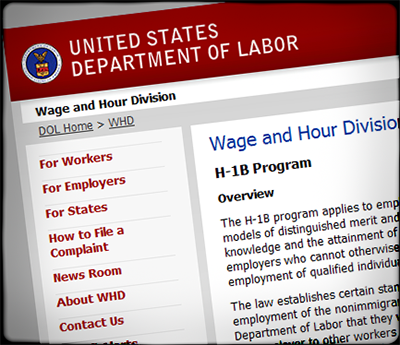
Let's make sure we get this straight.
The Trump administration, usually in the employers' corner, in one of its last acts decided to raise wages for H-1B workers, thus increasing the costs for fat-cat (as well as some skinny-cat) employers, and perhaps encouraging U.S. employers to hire U.S. workers in the high-tech fields.
The Biden administration, supposedly the ally of the working man, in one of its first acts has decided to at least postpone the higher-wage rule, and perhaps alter it, as Law360 has just reported.
Is there some distant folk-dance caller saying "change your partners"?
Did Silicon Valley, no friend of the Trumps, sweet talk the new administration into postponing the new rule, in the hopes of emasculating it? That's probably what happened.
Will otherwise pro-employer GOP members of the U.S. Senate thunder about the new administration's abandonment of high-tech workers? Let's hope so.
The Trump administration's innovation in this setting was profound. Instead of using the traditional lottery to distribute the applications, which always exceed the 65,000 and 20,000 annual caps on the program, it decided (appropriately) to grant applications offering higher wages for specific job categories, and thus denying applications showing lower wages for similar jobs. (The larger cap went for slots calling for bachelor's degrees, the smaller one for those with advanced degrees.)
It was to become an auction, not a lottery. The higher wages for the incoming H-1Bs would, it was expected, tend to raise wages in the industry for all workers, including citizen ones, and might encourage some employers to look again at America's own high-tech workers.
This was not only a policy change, it was a deeply-researched, complex one that took 247 pages of prose to explain; that represented a lot of thought and a lot of staff time.
The latest twist in this story means that the upcoming round of H-1B applications, due in the first few days of next month, will be distributed in the traditional way.
The Biden administration, which has been so creative and generous when it comes to childhood poverty, apparently can't extend similar efforts to bring justice to all high-tech workers, and maybe some jobs for American workers in this field.
